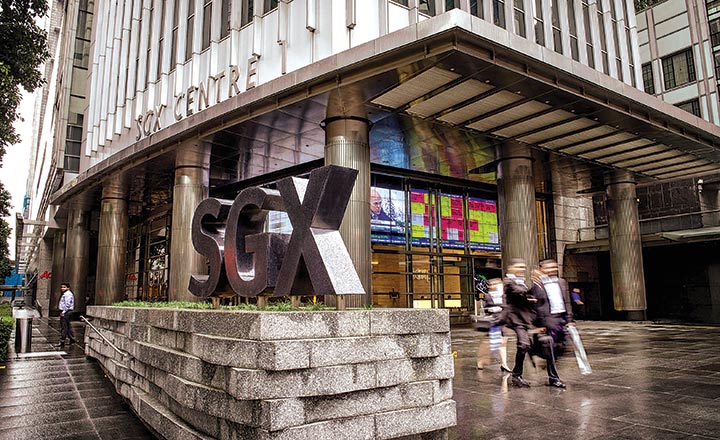The news of the closure of offshore trading of Nifty index futures is a backward step in the backdrop of India’s continued claim of being an open economy. National Stock Exchange (NSE) along with Bombay Stock Exchange (BSE) and Metropolitan Stock Exchange announced on February 9, its decision to terminate its commercial licensing arrangement with its foreign peers, under which it shared data relating to dollar-denominated index futures linked to Nifty 50 (and other thematic indexes), S&P BSE Sensex, select stocks and Nifty 50 options.
Previously, the derivatives benchmarked to Nifty indices would trade on the Singapore Stock Exchange (SGX), Dubai Exchange, Chicago Mercantile Exchange, the Osaka Exchange and the Taiwan Futures Exchange. The exchanges have been given six months notice (till August 2018) to wind up their business. BSE, which had arrangements to share data with BRICS Exchanges Alliance, Hong Kong, South Africa, Eurex and Dubai exchange, will also terminate them.
Terms like ‘protectionism! regressive!’ have been recurring in the discourse surrounding NSE in the aftermath of this decision. NSE has stood its ground and has disparaged the claims of naysayers. CEO Vikram Limaye says, “The move is not anti-competitive in any way, because these are licensing arrangements in commercial contracts and from that perspective nobody is compelled to share their IP if they do not want to. It is in fact quite common to find other exchanges, not sharing prices and data relating to the core contracts, if liquidity is going to get fragmented and built offshore.”
While the jury is still out as to whether this move by the regulators will succeed in achieving the desired objective of increasing domestic volume, there is overt discontent. According to Nirmal Jain, founder and chairman, IIFL, “If you want to make the stock market vibrant, then the impact cost should be kept at minimum. It is because of high rate of securities transaction tax (STT) in India that SGX thrived. If you remove STT, why would someone trade in SGX? However, this is a free, global world and you can’t create artificial barriers for too long. Remove STT and make the market more liquid so that volumes surge in our bourses.”
UR Bhat, MD, Dalton Capital also expresses concern about the fact that the regulators have not addressed the fundamental problems relating to investing in India, but at the same time are saying that market is getting exported. “To view this matter in isolation is not the right thing to do. One needs to go to the genesis of why the market is getting exported and address those issues and that has not been done,” Bhat adds.
The move has also received backlash from MSCI, which in accordance with its rules-based approach stated that it will reduce the weight of India in its emerging market index, from the current 8.17%, albeit marginally. Pramod Gubbi, Ambit Capital’s managing director and head of equities, believes that it if this happens, it is largely the exchange traded funds (ETFs), which will be impacted by this move, but it will not result in any significant outflows. All the actively managed funds will continue to remain overweight on India. Bhat concurs with Gubbi, and states, “If they cut weight, the incremental money may be affected temporarily. In the long term, there are many India-dedicated funds which will come, as India will give them good return.”
While NSE is expected to be a net beneficiary of this move in the form of soaring volume, SGX, which commands the largest proportion in the trading of the Nifty index futures at 39.13% for the Q3FY18, will be at the receiving end of this arrangement. Over the past few years, SGX’s concerted efforts to attract volume had resulted in the increased proportion of SGX Nifty in the aggregate volume of Nifty 50 index futures (traded at NSE and SGX) from 12.25% in Q2FY16 to 39.13% in Q3FY18. During the same time, NSE’s proportion in the aggregate volume declined from 87.75% to 60.87%.
In order to make the transition seamless for international investors, the International Financial Services Centre at the Gujarat International Finance Tec-City (GIFT), Gandhinagar has been providing similar benefits, in the form of exemption from the STT, long-term capital gains tax and short-term capital gains tax.
However, market experts reckon that the transition will have some hiccups. One of the primary reasons for investment through the offshore channel was the need to hedge the positions in the cash market. While the GIFT will provide dollar denominated contracts, the ease of participation provided by SGX will be missed. Gubbi explains, “SGX has worked over the years to establish it’s leading status in this domain and make the process hassle-free for its investors, which in turn has increased its trading volumes to current levels. While GIFT does provide the infrastructure similar to SGX, it will be able to attain a similar momentum only over a period of time.”
Alok Churiwala, MD of Churiwala Securities and a former member of the BSE board is sceptical about the commensurate transfer of trading volume from offshore to domestic. He explains, “Financial centres are not built overnight. The dispute resolution mechanism and the regulatory environment need to be tested.” SGX, meanwhile, has announced that it will list successor products to the Nifty-based products on the IFSC in GIFT, before August 2018, while managing their clearing exposures through SGX. This will enable an easy transition for its existing base of customers.











